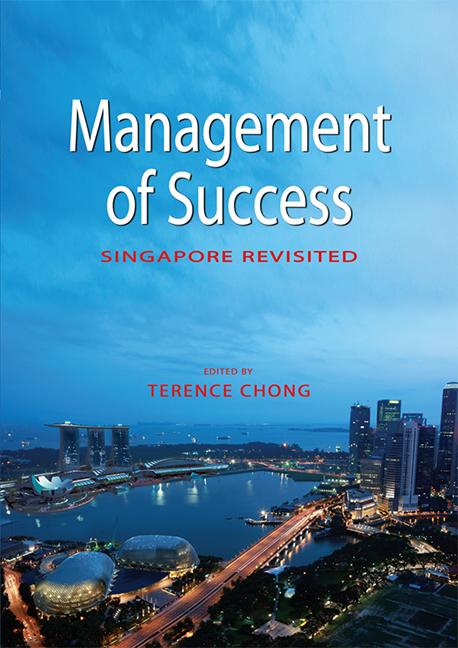Book contents
- Frontmatter
- Contents
- List of Tables and Figures
- Foreword
- Message
- Quote
- Preface
- The Contributors
- 1 Introduction: The Role of Success in Singapore's National Identity
- SECTION 1 SINGAPORE IN THE BIGGER PICTURE
- SECTION 2 LEADERSHIP, POLICY AND POLITICS
- SECTION 3 THE RESTRUCTURING OF THE ECONOMY
- SECTION 4 THE TRANSFORMATION OF SOCIETY
- 11 The Ageing Population
- 12 Managing Labour Flows: Foreign Talent, Foreign Workers and Domestic Help
- 13 Social Mobility in Singapore
- 14 Singapore's Print Media Policy: A National Success?
- 15 Control-shift: The Internet and Political Change in Singapore
- 16 The Transformation of Meritocracy
- 17 Education in Singapore: Sorting Them Out?
- 18 Religious Diversity in Singapore
- SECTION 5 THE LAW
- SECTION 6 MODIFICATION OF THE ENVIRONMENT
- SECTION 7 COMMUNITY AND NATIONAL SECURITY
- SECTION 8 LIFE IN SINGAPORE
- Index
14 - Singapore's Print Media Policy: A National Success?
from SECTION 4 - THE TRANSFORMATION OF SOCIETY
Published online by Cambridge University Press: 21 October 2015
- Frontmatter
- Contents
- List of Tables and Figures
- Foreword
- Message
- Quote
- Preface
- The Contributors
- 1 Introduction: The Role of Success in Singapore's National Identity
- SECTION 1 SINGAPORE IN THE BIGGER PICTURE
- SECTION 2 LEADERSHIP, POLICY AND POLITICS
- SECTION 3 THE RESTRUCTURING OF THE ECONOMY
- SECTION 4 THE TRANSFORMATION OF SOCIETY
- 11 The Ageing Population
- 12 Managing Labour Flows: Foreign Talent, Foreign Workers and Domestic Help
- 13 Social Mobility in Singapore
- 14 Singapore's Print Media Policy: A National Success?
- 15 Control-shift: The Internet and Political Change in Singapore
- 16 The Transformation of Meritocracy
- 17 Education in Singapore: Sorting Them Out?
- 18 Religious Diversity in Singapore
- SECTION 5 THE LAW
- SECTION 6 MODIFICATION OF THE ENVIRONMENT
- SECTION 7 COMMUNITY AND NATIONAL SECURITY
- SECTION 8 LIFE IN SINGAPORE
- Index
Summary
THE OBJECTIVES OF PRESS MANAGEMENT
The ruling People's Action Party (PAP) has argued that the economic growth and the social and political stability it has been very successfully delivering necessitates the illiberal politics it practises. The illiberalness is manifested in several ways and a variety of domains ranging from the handicapping of the opposition, to the depoliticization of civil society activism, the proscribing of public discourse, the co-option of workers’ unions, and the state's hegemony over many institutions, such as grassroots organizations. This chapter deals with another feature of the PAP's authoritarianism: its control and management of the Singapore and foreign print media. In the 1989 volume of Management of Success, it was observed that while editors and journalists are free to exercise their discretion in the running of local newspapers, they are regularly reminded of their responsibility to society and of reports that displease the government. “Such reminders have the effect of making the Singapore press docile, since editors and reporters wishing to operate within unspecified limits will tend to play safe and not exploit the full potential of what the government might permit. There is also likely to be another effect: knowledgeable and intelligent readers will tend to impute an element of doubt to any reporting in the local press, even if such reports are accurate.”
This chapter examines the history of this media regime and its future implications and argues that the “success” of the media policies can be analysed from different points of view, from that of the party, the government, and the nation. It also argues that because the goals of the party, the government, and the nation are sometimes divergent, “success” in one area may mean the opposite in another. The PAP government has three objectives in the way it manages the print media, or press. It seeks to have newspapers that are:
a) Compliant. It wants a local press that supports the objectives of the executive, one that serves the “national interest”, and a foreign press that does not think it can get away with whatever it writes.
b) Competent. It wants a local press that is managed and edited professionally, with trained and capable editors and reporters who know their job and do it well.
c) Commercially viable. It wants Singapore newspaper companies that are viable, better still, thriving businesses.
- Type
- Chapter
- Information
- Management of SuccessSingapore Revisited, pp. 242 - 256Publisher: ISEAS–Yusof Ishak InstitutePrint publication year: 2010

